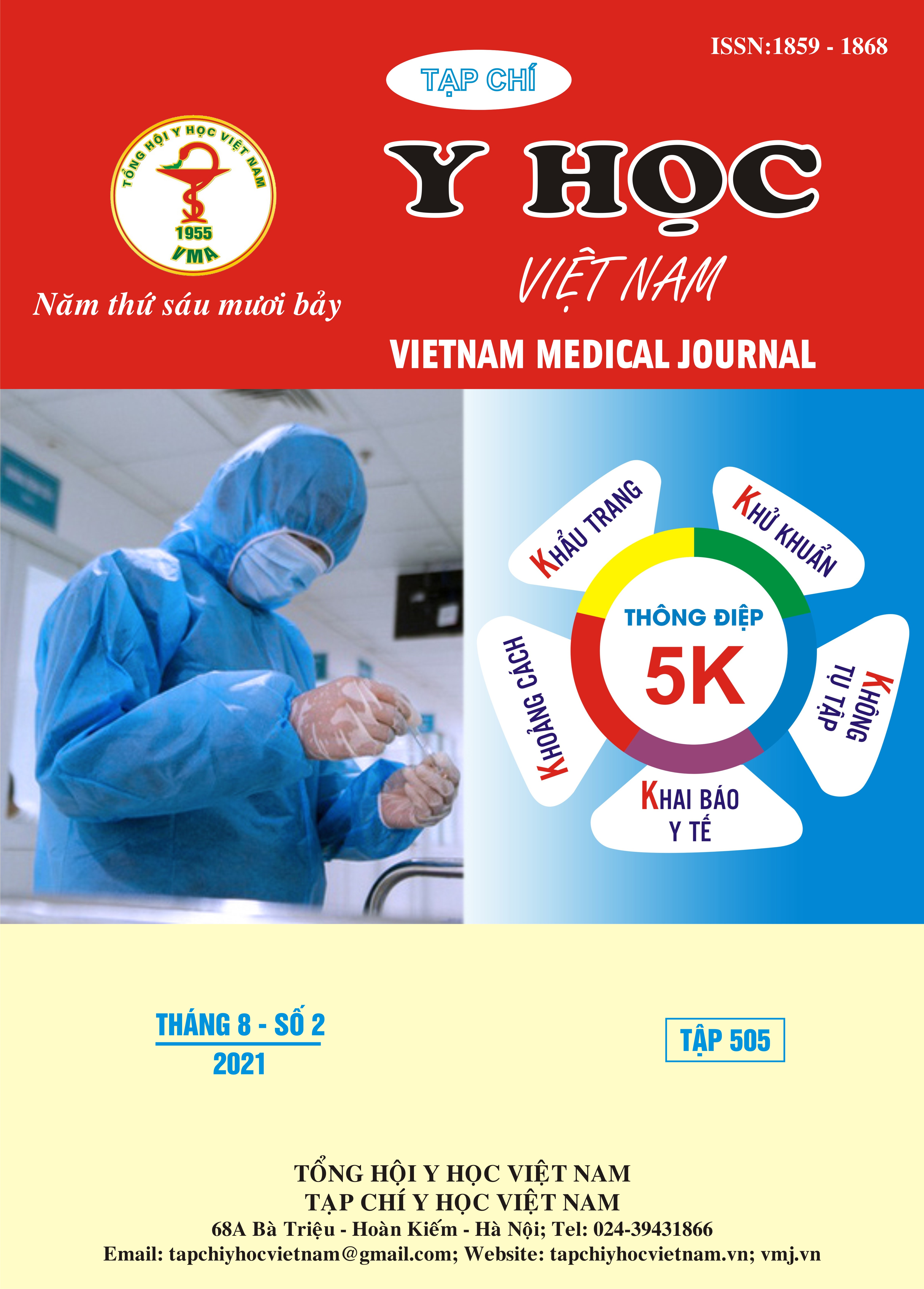INVESTIGATION OF MEDICATION ADHERENCE TO ANTIHYPERTESIVE DRUGS AND SOME RELATED FACTORS AMONG HYPERTENSIVE STROKE PATIENTS
Main Article Content
Abstract
Objective: To investigate the medication adherence (MA)to antihypertensive drugs and to analyze some related factorsamong hypertensive stroke patients. Patients and methods: A cross-sectional study involving 220 hypertensive stroke patients was conducted from September 2020 to June 2021 in Neurology Department of Bach Mai hospital. Data were collected through medical records and designed questionnaire. Assessment of MA to antihypertensive drugs was based on Morisky Medication Adherence Scale-8. Result: The average age of patients was 65.13±11.54 with male 55%. 20.8%, 47.0% and 32.3% of patients had poor, moderate and adequate knowledge of hypertension, respectively. The average Morisky-8 score was 4.93 ±1.97. The percentage of MA to antihypertensive drugs amonghypertensive stroke patients was poor, moderate, and high at 59.9%, 31.7% and 8.4%, respectively. Gender, age, health insurance, current smoking, duration of hypertension, and patient’s knowledge of hypertension were independently associated with MA among hypertensive stroke patiens. Conclusion: The poor MA to antihypertensive drugs among hypertensive stroke patientsaccounted for a high rate (59.9%). Related factors associated independentlywith MA in these patientsinclude: age group over 50, female, health insurance, non-smoker, duration of hypertension over 5 years, and good understanding of hypertension.
Article Details
Keywords
Medication adherence, Stroke, Hypertension, MoriskyMedication Adherence Scale-8
References
2. Gupta P., Patel P., Štrauch B., et al. (2017). Risk Factors for Nonadherence to Antihypertensive Treatment. Hypertension, 69(6), 1113–1120.
3. Langagergaard V., Palnum K.H., Mehnert F., et al. (2011). Socioeconomic differences in quality of care and clinical outcome after stroke: a nationwide population-based study. Stroke, 42(10), 2896–2902.
4. Schulz M., Krueger K., Schuessel K., et al. (2016). Medication adherence and persistence according to different antihypertensive drug classes: A retrospective cohort study of 255,500 patients. Int J Cardiol, 220, 668–676.
5. Pan J., Lei T., Hu B., et al. (2017). Post-discharge evaluation of medication adherence and knowledge of hypertension among hypertensive stroke patients in northwestern China. Patient Prefer Adherence, 11, 1915–1922.
6. Xu J., Zhao X., Wang Y., et al. (2013). Impact of a better persistence with antihypertensive agents on ischemic stroke outcomes for secondary prevention. PLoS One, 8(6), e65233.
7. Lee G.K.Y., Wang H.H.X., Liu K.Q.L., et al. (2013). Determinants of medication adherence to antihypertensive medications among a Chinese population using Morisky Medication Adherence Scale. PLoS One, 8(4), e62775.
8. Vũ Xuân Phú và Cs. (2012). Nghiên cứu một số yếu tố liên quan với tuân thủ điều trị tăng huyết áp ở bệnh nhân 25-60 tuổi tại 4 phường thành phố Hà Nội, năm 2011. Tạp chí Y học thực hành, số 5, 47–51.
9. Ois A., Gomis M., Rodríguez-Campello A., et al. (2008). Factors Associated With a High Risk of Recurrence in Patients With Transient Ischemic Attack or Minor Stroke. Stroke, 39(6), 1717–1721.


